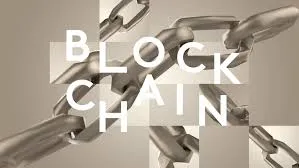The director of the recently opened BlockLAb talks about its purpose and what sets it apart from other blockchain research centers.

On September 26, the Center for Large Scale Data Systems at UC San Diego's Supercomputer Center announced it had opened the doors of its new blockchain research center, dubbed BlockLAB. ETHNews caught up with the project's director to hear what he has to say about the purpose of BlockLAB, the roles various partners will play, and what sets it apart from other blockchain research centers.
Collaborators
According to the announcement, some of the major partners in creating BlockLAB are Dell Technologies, IBM, and Intel. Combining the influence and knowledge of these technology giants has the potential to make huge contributions to both the research being done at BlockLAB and to the entire blockchain industry as well.
According to James Short, the project's director, these companies "are providing early access to BC [blockchain] technologies they are developing and/or experimenting with." These partners will also allow access to ongoing and completed research, as well as making suggestions on what kind of research should be conducted at BlockLAB.
In addition to providing research and technological support, Short stated that Dell, IBM, and Intel are also providing financial support for the project, though BlockLAB is also seeking government grants and foundational support.
Research
There are hundreds, if not thousands of ideas and theories about how blockchain technology can and should be used. But coming up with new use cases for blockchain technology is not where Short wants to focus BlockLAB's efforts. He feels that the "problem is not one of identifying prospective use cases. It is one of identifying where BC offers advantages over other technologies, and what those advantages and risks are over the BC lifecycle."
According to Short, participants in BlockLAB will be researching how to use blockchain technology to improve uses cases such as identity security and management, supply chain administration, and data and value exchange, which Short believes will impact industries such as "healthcare, consumer retail, financial services, transportation, and pharmaceutical development."
As to what is going to be done with the completed research, Short said that BlockLAB did not have a "generic output model." He says:
"Some use cases just present an idea, some present an application technology and/or business model. Some go much further, including, for example, more detailed business market and economic analysis. The LAB will conduct experiments looking at all three objectives, using a portfolio approach."?What Makes BlockLAB Unique?
The idea of establishing a place where interested parties can research and develop blockchain technology is not new. In June of this year, Stanford University created its Center for Blockchain Research, which was intended to be a place where participants can come and develop best practices for blockchain technology.
Just a few days earlier, the Chinese Academy of Sciences announced it had created the Big Data and Blockchain Lab in order to "study blockchain technology from a mathematical perspective and foster talent in the growing blockchain industry." Columbia University and IBM have also collaborated on a research center.
So, what sets BlockLAB apart from all the rest? Short feels that the fact the center is located at the San Diego Supercomputer Center, giving participants access to high-performance computing researchers, is something that makes the research center unique.
He also stated that the diversity and multi-disciplinary approach, along with the "mixed technical, economic and management approach" that comes with putting BlockLAB in a university setting, sets BlockLAB apart from other research centers.
Conclusion
Although blockchain technology is still in its infancy, many people have already realized the potential of the technology to improve their respective industries. But the ideas, theories, and use cases for blockchain technology still need to be researched and best practices need to be established. Blockchain research labs like BlockLAB have the potential to be a crucial step in the process.